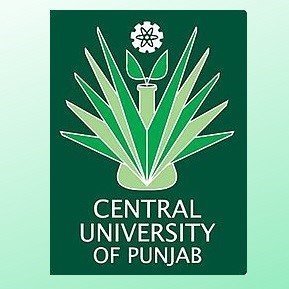Central University of Punjab organized an Interactive Session on Issues in Social Science Research and New Research Priorities
Bathinda: The Office of Dean Research at the Central University of Punjab, Bathinda under the patronage of the Vice Chancellor, Prof. Raghavendra P. Tiwari organized an interactive session on the topic ‘Issues in Social Science Research and New Research Priorities’. The event was graced by Prof. V.K. Malhotra, Member Secretary, Indian Council of Social Science Research, New Delhi who shared his ideas and experiences with the audience as the distinguished resource person.
To commence the program, Prof. Anjana Munshi, Dean Research, welcomed the participants and introduced Prof. Malhotra. This was followed by apresentation by Prof. P.K. Mishra, Dean, School of Social Sciences, where he highlighted the thrust areas of research carried out by the social science faculty of CUPB and shared their challenges during problem formulation, study design and publishing research output. Following this, the HoDs and young faculty members presented the research work carried out by their respective departments.
Prof. V.K. Malhotra stated that CUPB has done commendable work in the field of research in a short span of 12 years since its establishment, and the university has immense potential to improve its rankings in the years to come. He informed that ICSSR provides funding to scholars to conduct cutting edge research in various field of social sciences including Sociology and Social Anthropology; Political Science; Economics; International Studies; Social Geography and Population Studies; Commerce and Management; Social Psychology; Education; Social Linguistics / Socio-Cultural Studies; Law / International Law; National Security & Strategic Studies;; and Other allied Social Science disciplines. He spoke about fellowships & research projects offered by ICSSR and underlined various social science disciplines under which ICSSR provides grants to organize Training and Capacity Building Programmes to enhance the quality of research. He asserted that post consideration of ICSSR’s impactful policy suggestions to the Ministry of Education in the past few years has provided wider opportunities to young faculty members to earn research grants and led to an increase in the share of social science research in the overall research of our country. An example of this is the introduction of short-term research projects under IMPRESS Scheme.
While interacting with participants Prof. Malhotra advised the young researchers to adopt a problem-solving approach, follow research protocol and come up with original ideas for their research. He made an appeal to young faculty members to focus on new and emerging areas in social science research which include Data Sufficiency & Data Gap; Food & Nutrition Security; Start-ups & Technology Transfer; AtmaNirbhar Bharat; Social and Human Capital blended with Skill India; Indian Knowledge Systems; Issue of Migration; Analysing the working of major democracies of the world; Geo Politics; Disaster Management; Women Empowerment; River Water Sharing between states and Countries; Research Innovation & Patents, etc. to name a few. To solve the problems of researchers, he emphasized that ICSSR is putting efforts to provide new opportunities to provide support for the publication of research work via short term research projects.
In his presidential address, Prof. Raghavendra P. Tiwari, Vice Chancellor, CUPB, expressed his gratitude towards Prof. V.K. Malhotra for enlightening the participants. He mentioned that the deliberation by Prof. Malhotra has helped the faculty to understand the overall sphere of social science operations and its possible integration with the science streams. He stressed that social science researchers need to work towards multidisciplinary and transdisciplinary research, link their research to national issues/sustainable development goals, and come out with innovative solutions for various societal problems.
Towards the end, Prof. R.K. Wusirika, Dean Incharge Academics, gave a formal vote of thanks. The programme was attended by faculty, research scholars and students of the university.

